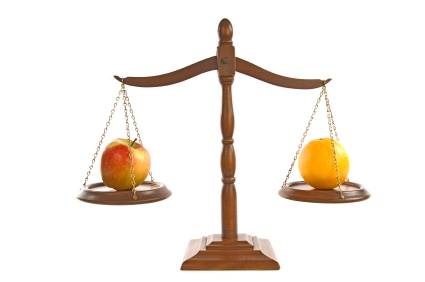If you’ve ordered your credit report and credit score recently, or want to learn more about your credit standing, you may be wondering about the difference between your Equifax Credit Score and your FICO Score.
Both of these scores are general-purpose score models that can tell someone – either a lender or even you – about your creditworthiness.
For lenders, they use credit scores to assess how likely you are to repay a loan. Thus, your credit scores can make all the difference between you being approved for something like a mortgage or car loan, versus you being denied for one of those loans.
So if you think you might want a new credit card, a student loan, home loan or another form of credit within the next year or so, it’s wise to strive for the highest credit score possible to be more attractive to banks and other prospective lenders.
Here’s a closer look at the difference between the Equifax Credit Score and the FICO Score:
Scoring Models and Numerical Ranges
The Equifax Credit Score is a proprietary scoring model created by Equifax – one of the three main credit-reporting agencies. The Equifax score and has a numerical range of 280 to 850.
By contrast, the FICO Score is a proprietary scoring model created by the Fair Isaac Corporation (FICO) and FICO scores range from 300 points to a maximum of 850 points.
With both scoring systems, a higher score indicates better credit and a low score reflects a poor credit rating.
It’s important to understand that it’s not uncommon to have different credit scores simply because each of these independent companies (Equifax and Fair Isaac) use different formulas or criteria to create your credit scores.
Likewise, some lenders will pull whatever credit scores they want when evaluating your credit application. Most of the country’s largest banks use FICO scores. But lenders don’t typically use the same Equifax Credit Score that you can get.
That’s because an Equifax credit score is considered to be an “educational” score. In other words, it’s sold exclusively to consumers – not businesses – and its main purpose is to help you better understand your overall credit standing and how to boost your credit rating.
How Credit Scores are Calculated
Your Equifax Score and FICO Scores are based on information provided to the credit bureaus by your creditors and other organizations. This information can change frequently as you apply for loans and credit cards, make payments or fail to make payments on time, or if you file for bankruptcy or have another major credit setback.
Both scoring models take numerous factors into account when tabulating your score. And while each company uses its own fairly hidden calculation to determine what the final score is, we do have a general idea about the main categories used to determine your score.
The primary categories for both scoring models include: payment history; total amount of credit owed; length of credit history; new credit obtained; and the types of credit you are using.
Looking a little more closely at these factors, based on how Equifax tells consumers that their credit scores are calculated:
- Payment History. Do you make your payments on time or are you late? If you’re late, how late are those payments? Are you paying in full or only making minimum payments?
- Amounts Owed and Available Credit Balances. Creditors look at how much installment and revolving debt you owe. But they also want to know what percentage of your available credit balance you are using.
- Length of Credit History. How long have your credit accounts been open? Which accounts have been closed and why?
- New Credit Accounts. Opening several new accounts can affect your length of credit history, your available balances and could negatively impact your credit score.
- Types of Credit. Creditors like to see a variety of types of credit, including installment loans (such as auto loans), revolving loans (such as a mortgage or home equity loan), and open credit accounts (such as credit cards).
FICO and Equifax officials both say that the first two factors – your payment track record and the credit card debt you’re carrying – account for about 65% of your credit score under both credit models.
So regardless of whether you’re looking at an Equifax Credit Score or a FICO score, you can go a long way toward improving your credit just by diligently paying all your bills and keeping your debt levels low.
Lastly, with both credit models, just over a third of your credit scores – the remaining 35% – is based on the length of your credit history (10%); inquiries or new applications for credit (10%); and the type or mix of credit that is currently in your credit files (10%).








